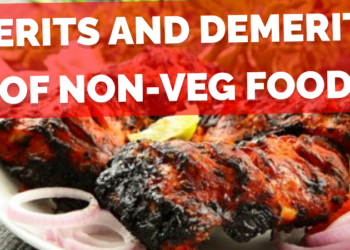veganism has surged in popularity as people around the world are increasingly drawn to plant-based diets. This dietary choice not only aligns with environmental and ethical concerns but also offers numerous health benefits.
Definition of Vegan Food
Vegan food is a dietary approach that excludes all animal products, including meat, dairy, eggs, and even honey. It emphasizes the consumption of plant-based foods such as fruits, vegetables, grains, nuts, and seeds.
The Growing Interest in Veganism
Veganism has gained remarkable momentum in recent years, with an increasing number of people choosing this lifestyle. Factors like health consciousness, environmental awareness, and ethical concerns are driving this shift.
What is Vegan Food?
Veganism extends beyond diet it’s a lifestyle that avoids using animal products in all aspects of life. This includes clothing, cosmetics, and household items.
What Vegans Do Not Consume
Vegans refrain from consuming any form of animal-derived products. This includes not only meat and dairy but also items like gelatin, which is derived from animal bones.
Benefits of Vegan Foods
Health Benefits
- Rich in the nutrients your body needs
- Vegan food can boost your mood
- Eating vegan can help you achieve a healthy body weight
- Go Vegan for Animals and the Planet
Environmental Benefits
Choosing vegan foods significantly reduces one’s carbon footprint. The livestock industry is a major contributor to greenhouse gas emissions, deforestation, and water pollution.
Ethical Considerations
Veganism is driven by a commitment to animal welfare. It seeks to minimize animal suffering and promote more humane treatment of animals.
Advantages and Disadvantages of Vegan Foods
Advantages of Vegan Foods:
- Health Benefits: Vegan diets are typically high in fruits, vegetables, and whole grains, which are rich in vitamins, minerals, and antioxidants. This can lead to lower risks of chronic diseases like heart disease, diabetes, and certain cancers.
- Weight Management: Many vegans find it easier to maintain a healthy weight due to the lower calorie density of plant-based foods. Vegan diets can promote weight loss and reduce the risk of obesity.
- Environmental Impact: Veganism has a smaller carbon footprint compared to diets that rely heavily on animal products. It helps reduce greenhouse gas emissions, land use, and water consumption, contributing to a more sustainable planet.
- Ethical Considerations: Veganism aligns with ethical beliefs about animal welfare by avoiding the exploitation of animals for food. It promotes compassion and cruelty-free living.
- Allergen-Friendly: Vegan diets are naturally free from common allergens like dairy and eggs, making them suitable for individuals with allergies or intolerances.
Disadvantages of Vegan Foods
- Nutrient Deficiency Risk: Vegans may be at risk of nutrient deficiencies, particularly in vitamin B12, iron, calcium, omega-3 fatty acids, and protein. Careful planning and supplementation are often necessary.
- Limited Food Choices: Vegan diets may require more effort to find suitable options, especially in regions with limited vegan-friendly restaurants and products.
- Social Challenges: Veganism can pose social challenges, as it may limit dining options when eating out with non-vegan friends or family. It can also lead to misconceptions and criticism from others.
- Initial Cost: Some vegan specialty products can be expensive, potentially increasing grocery bills. However, this cost can be mitigated by prioritizing whole, plant-based foods.
- Taste and Texture: Some people may find it difficult to adjust to the taste and texture of vegan alternatives to traditional animal-based foods, such as meat and cheese substitutes.
The Future of Vegan Food
Increasing Popularity
As more people embrace veganism, the demand for vegan products and options is skyrocketing. Restaurants, supermarkets, and food companies are expanding their vegan offerings.
Innovations in Plant-Based Cuisine
The future of vegan food looks promising, with ongoing developments in plant-based meat, dairy alternatives, and innovative cooking techniques.
Transitioning to Veganism
Tips for Beginners
For those interested in transitioning to a vegan diet, it’s important to start gradually, educate oneself about nutrition, and seek support from the vegan community.
Common Misconceptions
Addressing myths and stereotypes surrounding veganism, such as concerns about protein intake and taste, is crucial for dispelling misconceptions.
Vegan Food and Sustainability
Impact on the Environment
Choosing vegan foods significantly reduces one’s carbon footprint, making it an eco-friendly choice.
Reducing Carbon Footprint
The livestock industry’s environmental impact is substantial, and choosing plant-based foods is a tangible way to reduce it.
Vegan Food and Health
Nutritional Aspects
Vegans must pay attention to obtaining essential nutrients like vitamin B12, iron, and omega-3 fatty acids from plant-based sources.
Potential Health Concerns
While veganism offers many health benefits, it’s important to be aware of potential deficiencies and take steps to address them.
Vegan Food and Ethics
Animal Welfare
Vegans are motivated by a commitment to animal rights and seek to minimize harm to animals in all aspects of life.
Ethical Dilemmas
Choosing veganism may involve confronting ethical dilemmas related to family traditions, cultural practices, and societal norms.
Veganism in Popular Culture
Celebrities and Veganism
Many celebrities are vocal advocates for veganism, helping to bring the lifestyle into the mainstream.
Vegan-Friendly Restaurants
The rise of vegan-friendly eateries is making it easier for people to enjoy plant-based meals while dining out.
Recipes and Vegan Alternatives
Vegan Recipe Ideas
Explore a variety of delicious vegan recipes, from creamy plant-based pasta to hearty veggie burgers.
Substitutes for Animal-Based Products
Discover alternatives to common animal-based ingredients in cooking and baking.
Vegan Food Around the World
Regional Variations
Vegan food isn’t limited to a single cuisine. Explore the diverse and delicious world of vegan cuisine from various cultures.
Cultural Significance
In some cultures, vegan dishes have deep-rooted traditions and play an integral role in their culinary heritage.
Challenges in Vegan Advocacy
Changing Mindsets
Promoting veganism often involves changing deeply ingrained mindsets about food and lifestyle choices.
Addressing Myths and Stereotypes
Confronting misconceptions and stereotypes is essential for fostering understanding and acceptance of veganism.
Vegan Food in Daily Life
Meal Planning
Practical tips for planning and preparing balanced vegan meals in daily life.
Vegan Grocery Shopping
A guide to navigating the grocery store and choosing vegan products.
FAQ about Vegan Foods
- FAQ 1: What is a Vegan Diet?
- Answer: A vegan diet is a plant-based diet that excludes all animal products, including meat, dairy, eggs, and honey. It focuses on consuming fruits, vegetables, grains, nuts, and seeds.
- FAQ 2: Is Veganism Healthy for All Ages?
- Answer: Veganism can be a healthy choice for people of all ages, including children and seniors. However, it’s essential to pay attention to balanced nutrition and consult with a healthcare professional for specific dietary needs.
- FAQ 3: Can I Get Enough Protein on a Vegan Diet?
- Answer: Yes, you can get enough protein on a vegan diet. Plant-based sources of protein include beans, lentils, tofu, tempeh, nuts, and seeds. Combining different protein sources can ensure you meet your protein needs.
- FAQ 4: What Are Common Vegan Vitamin Supplements?
- Answer: Common supplements for vegans include vitamin B12, vitamin D, and omega-3 fatty acids. These supplements can help address potential nutrient gaps in a vegan diet.
- FAQ 5: How Can I Handle Social Situations as a Vegan?
- Answer: When dining out or attending social events, communicate your dietary preferences politely in advance. Many restaurants offer vegan options, and bringing a vegan dish to gatherings can be a thoughtful solution.
Source Some Website: Vegan society , Medical News Today , Health Harvard











